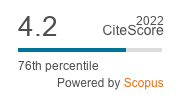Agricultural and pastoral abandonment and vegetal recolonization: the role of the woody species as indicators of the vegetal regeneration stage and the abandonment age
DOI:
https://doi.org/10.18172/cig.967Abstract
An agricultura! and pastoral abandonment has become general in many mountaineous areas, as a consequence of the depopulation of the countryside. This abandonment has unchained processes ofvegetable recolonization that has caused the disabling of traditionally pastured areas and the transformation of rural landscape. This vegetable recolonization presents diverse varieties and «speeds». The author comes to an approximation to the chronology of country abandonment, by the analysis of the progression woody plants in three suntrap (Bethmale, Faup y Aulus) in Haut Couserans (Central Pyrenees, France). The results show how the evolution of processes of vegetal recolonization is subject to «inversions», «blockades» and «accelerations», related to the environmental characteristics and the plots history.Downloads
Download data is not yet available.
Downloads
Published
23-05-2013
How to Cite
1.
Pérez Chacón E, Vabre J. Agricultural and pastoral abandonment and vegetal recolonization: the role of the woody species as indicators of the vegetal regeneration stage and the abandonment age. CIG [Internet]. 2013 May 23 [cited 2024 Apr. 19];14:99-122. Available from: https://publicaciones.unirioja.es/ojs/index.php/cig/article/view/967
Issue
Section
Articles
License
The authors retain copyright of articles and authorize Cuadernos de Investigación Geográfica / Geographical Research Letters the first publication. They are free to share and redistribute the article without obtaining permission from the publisher as long as they give appropriate credit to the editor and the journal.
Self-archiving is allowed too. In fact, it is recommendable to deposit a PDF version of the paper in academic and/or institutional repositories.
It is recommended to include the DOI number.
This journal is licensed under a Creative Commons Attribution 4.0 International License











